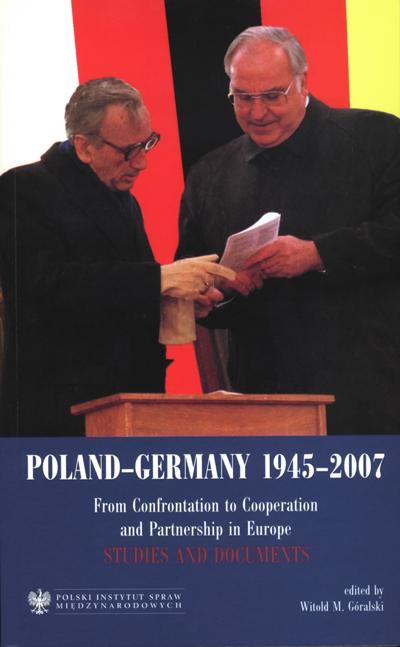The Legal Bases of Poland’s Relations with United Germany
The Legal Bases of Poland’s Relations with United Germany
Author(s): Jan BarczSubject(s): Politics / Political Sciences
Published by: PISM Polski Instytut Spraw Międzynarodowych
Summary/Abstract: Preliminary Observations 1. On the Eve of German Unification 1.1. Problem Definition 1.2. The Problem of the Rights and Responsibilities of the Four Powers with Regard to Berlin and Germany as a Whole 1.3. The Question of the German State’s Personality under International Law 1.4. The Legal Position of the FRG with Regard to the Polish-German Border 1.5. The FRG’s Position in the Matter of the Polish-German Border as Reflected in its Domestic Law 1.6. Conclusions from the German Unification Process 2. The Two Plus Four Agreement and the Legal Status of the Polish Border with the United Germany 2.1. The Stipulations of the Treaty Concerning the Polish-German Border 2.2. Putting an End to “Reservations” Related to the Peace Treaty 3. The Meaning of the Treaty Confirming the Existing Polish-German Frontier 4. The Effectiveness of the Provisions on the Boundary in German Domestic Law 5. The Precise Formulation of Legal Bases for Relations between Poland and United Germany—the “Large” Bilateral Treaty 5.1. Background 5.2. Fundamental Provisions 5.3. The Problem of Protecting National Minorities 5.4. The Problem of Compensation for Former Slaveand Forced Laborers 5.5. The Problem of the Expropriations Made by Poland on the Western and Northern Territories Conclusion The political and systemic transformations in Poland coincided with the process of German unification. This was the most propitious moment to embark on a general redefinition of Polish-German relations in independent Poland’s new foreign policy. Two fundamental problems were involved. Firstly, it was necessary to resolve many problems left over from the past, especially to clarify all doubts concerning the territorial status quo. Insofar as Poland’s position (which was shared by the international community) was unequivocal—boundary settlements arising from the Second World War, including the Polish-German boundary, were final in character from the viewpoint of international law—another view was presented in the FRG: the German boundaries were a sort of legal modus vivendi which was to last until the conclusion of a peace treaty with a united Germany.
Journal: PISM Series
- Issue Year: 2007
- Issue No: 3
- Page Range: 115-159
- Page Count: 45
- Language: English

